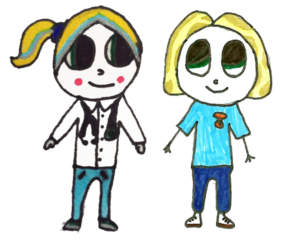 Societi Foundation statement on children, young people and vaccines for Covid-19
Societi Foundation statement on children, young people and vaccines for Covid-19
Published on 5 October 2021 – updated 21 February 2022
The advice for Covid-19 vaccination of children and young people is constantly being updated as the Joint Committee on Vaccines and Immunisation (JCVI) assesses the health benefits and risks for our children with careful scrutiny.
When the vaccine roll out first started almost a year ago, this was for adults only because the vaccines had not yet been tested for use by children and young people. Since then, research on the vaccine into its effectiveness and safety for use in children has been done, showing high levels of safety. Around the world, children and young people are being vaccinated in their millions. Careful monitoring of vaccines in all age groups continues to show high levels of effectiveness and safety compared to the risk of Covid-19, including in children.
Different ways Covid-19 is affecting children and young people
The risk of serious illness from Covid-19 in children is very low, although there will be a very small number of children who become seriously ill. One of the reasons the vaccine is being offered is to protect children from this very low risk, but also to protect them from getting unwell and having to miss even more of their school education and social activities than they already have.
Vaccination does more than prevent serious infection
The decision has been made by assessing the balance of medical benefits – reducing even further the risk of children being seriously ill. But it’s also taken into account the education benefits, social, emotional and overall wellbeing benefits too. Preventing Covid-19 infection and illness means we can try to make sure children and young people aren’t affected further by missed school and college, missed social opportunities with their friends and missed activities. Immunising children helps stop the wider spread of COVID in the community, protecting older people such as grandparents and other vulnerable people. The decision to recommend vaccination has been made having compared the impact of these things with the rare potential side effects of Covid-19 vaccination.
We’ve provided some links below to help you easily access the most up to date information about vaccination of children and young people.
A statement (updated 16 February 2022) from the JCVI on vaccination of children aged 5 to 11 years old can be found here.
The RCPCH statement (17 February 2022) in response to JCVI advice on offering COVID-19 vaccination to all 5-11 year olds can be found here.
The RCPCH Covid-19 vaccination for children and young people, frequently asked questions can be found here. This page includes information about vaccination for children and young people who may be at a higher clinical risk. Every child and young person has a different journey with Kawasaki Disease but a history of Kawasaki Disease does not automatically mean a child or young person will be assumed to be at a higher clinical risk. Most children affected by Kawasaki Disease go on to make a full recovery and do not have lasting heart damage – most children therefore would not be considered as being at a higher clinical risk even if they have had Kawasaki Disease. Some children and young people will have other unrelated health issues as well which parents may need to consider.
If, after reading the information in the above links, you are still unsure about Covid-19 vaccinations for your child, or are unsure whether your child is at a higher clinical risk, speak to your usual doctor who will be able to help answer your questions.
ABOUT THIS POST: This is information issued by Societi Foundation, prepared by our Scientific Advisory Board updated on 21 February 2022.
IMPORTANT NOTE: The information contained in this statement is true and accurate to the best of Societi Foundation’s knowledge and belief, and is based on the information currently available to it. This statement does not give, and should not be construed as, medical advice.

